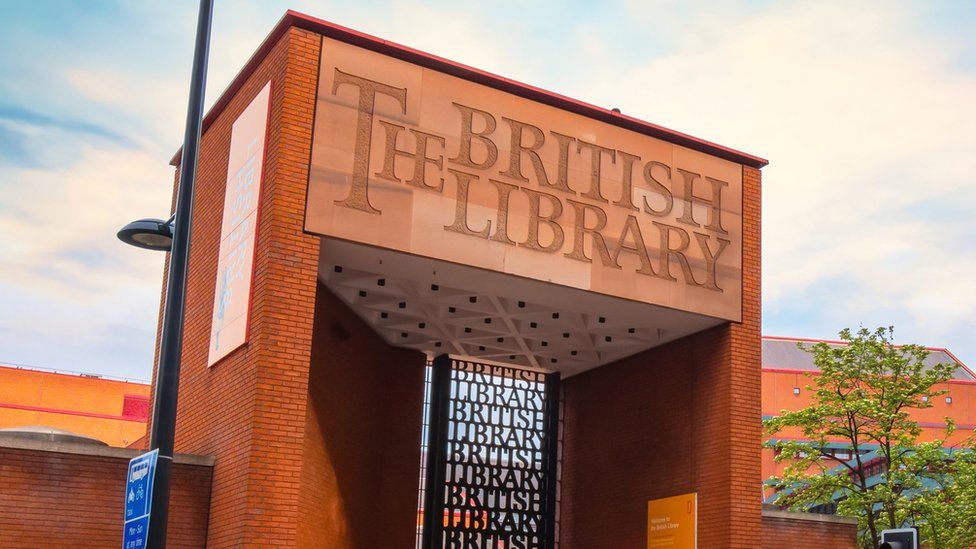British Library starts restoring services online after hack
- Published

The British Library's main catalogue, with more than 36 million records, returned online on Monday after last year's cyber attack.
It is the first significant step in the complete restoration of services for those using the UK's largest library.
But the catalogue will just be available in a "read-only" format.
Its chief executive warned that full recovery of all services would be a gradual process, but he said Monday had been "a quietly good day, at last".
The hack on 31 October resulted in the British Library's website being down for almost a month.
The Rhysida ransomware group claimed to be behind the attack.
And in November, the library confirmed some employee data had been leaked in it.
The world-renowned library has one of the largest book collections in the world.
Its main catalogue - which includes details of its printed and rare books, as well as journals, maps and music scores - is hugely important for researchers around the world.
But since the hack, users have been unable to access it on the internet.
Chief executive Sir Roly Keating said the impact on researchers from around the world had "just been terrible".
Speaking to BBC Radio 4's PM programme, he apologised for the disruption to services.
Asked if he had considered paying a ransom to the hackers, he said "good custom and practice is never to pay money to criminals, and as a great public institution of international standing that's an easy decision to make".
He would not be drawn on how hackers gained access in the first place, but said that lessons learned would be shared from about March onwards.
Sir Roly said the main online catalogue was back and available and searchable, as was the great majority of the library's "wholly unique material" - books, archives and manuscripts.
In his previous blog post, Sir Roly warned that the return of the main catalogue would not function as before for now.
While users would be able to search for items, checking availability and ordering them to use in the reading rooms would be different.
From this week readers will also be provided with access to most of the library's key special collections, including the archives, manuscripts and other unique items but would need to come in person to consult offline versions of specialist catalogues.
"Although the processes may be slower and more manual than we've all been used to, this is the familiar heart of the library's offering to researchers and restores a core element of our public service," he said.
"It will be good to have it back."
Access to the range of content held at the library's Boston Spa site and also to parts of its digital collections currently unavailable will follow.
Earlier this month, the Financial Times suggested rebuilding the British Library's digital services could come to £7m but Sir Roly said speculation on the recovery costs were "premature".
Related Topics
- Published27 November 2023
- Published8 August 2023